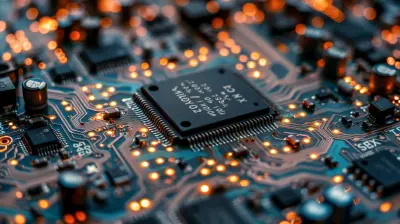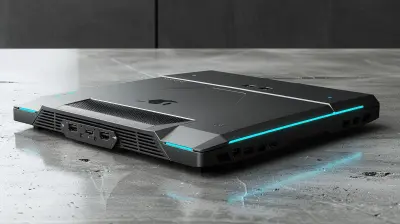Retro Consoles vs Modern Consoles: A Nostalgic Showdown
12 July 2025
If you're anything like me, there's something about the old-school chime of a starting screen or the clack of chunky plastic buttons that hits you right in the feels. Retro consoles hold a special place in our gaming hearts. But let’s be real—today's gaming consoles are powerhouses that push the boundaries of imagination. So, which is better? Retro consoles vs modern consoles—it’s a showdown where nostalgia meets high-tech wizardry. Let’s dig in, compare both sides, and maybe settle this age-old gamer debate once and for all.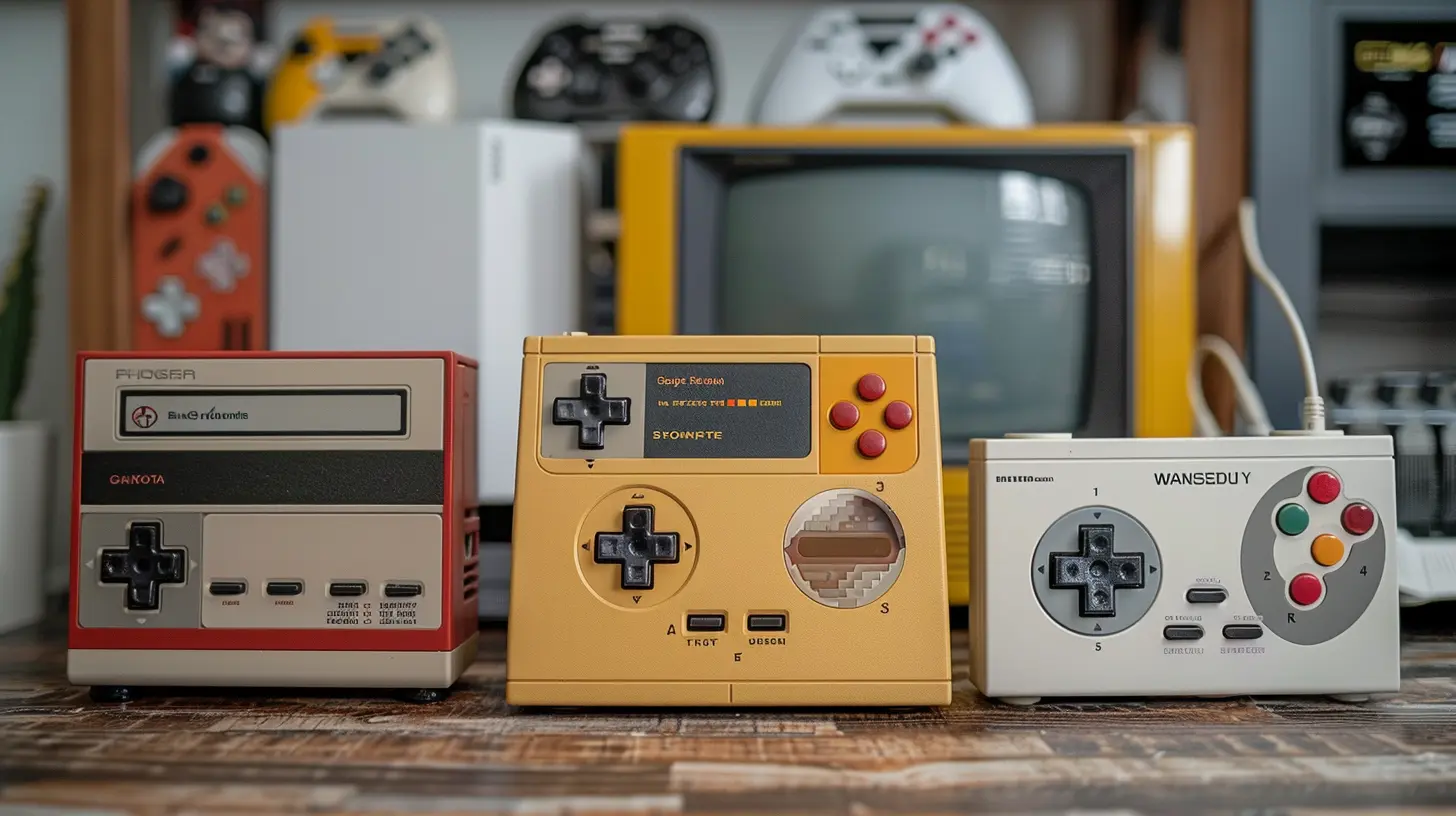
The Glory Days: Why Retro Consoles Still Matter
Remember blowing into cartridges to make them work? Weirdly enough, we all did it—even if it didn’t actually help. Retro consoles like the NES, Sega Genesis, SNES, and PlayStation 1 were the golden tickets to our childhood.Simplicity at Its Best
Retro consoles focused on gameplay above all else. You popped in the cartridge or disc, powered it on, and boom—you were in the game in mere seconds. No navigating massive menus or waiting on endless updates. It was gaming in its purest form.Iconic Titles That Defined Generations
Between "Super Mario Bros.", "The Legend of Zelda", and "Sonic the Hedgehog", we got introduced to gaming legends. These games didn’t need ultra-realistic graphics to pull us in. They offered challenge, creativity, and charm. And yes, they were hard. Like, make-you-cry hard. But beating them? Oh man, that satisfaction was something else.Couch Co-Op Vibes
Retro consoles gave us real social gaming. Not remote gaming over headsets—actual side-by-side couch co-op with siblings, friends, or that annoying cousin. There was nothing quite like a heated Mario Kart tournament or hours of battling in "Street Fighter II" until the sun came up.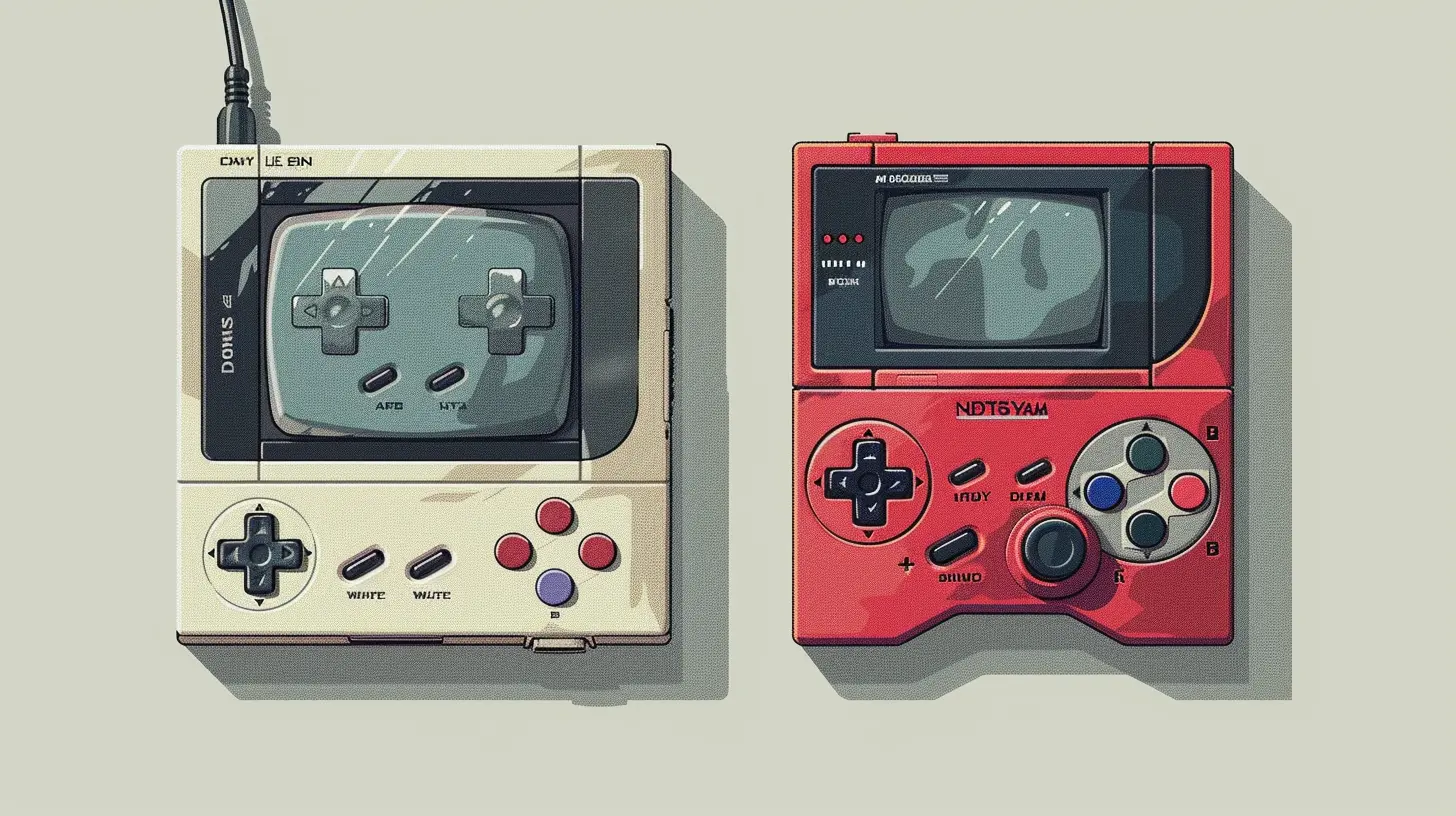
Leveling Up: The Power of Modern Consoles
Fast forward to today and we're in a whole new universe. Modern consoles like the PlayStation 5, Xbox Series X, and Nintendo Switch have taken gaming to unthinkable heights.Jaw-Dropping Graphics
Let’s talk real for a second—modern consoles look gorgeous. Lighting, shadows, textures—they're near photo-realistic. Games like "The Last of Us Part II" or "Horizon Forbidden West" don’t just look good; they tell emotional stories with cinematographic beauty.Online Connectivity and Cloud Gaming
Gone are the days of needing to own a physical game. With Xbox Game Pass, PlayStation Plus, and cloud gaming platforms, you can stream hundreds of games instantly. Plus, multiplayer gaming has transcended borders. You can now play with anyone around the world, anytime.Immersive Experiences
Think motion controls, adaptive triggers, VR setups, 4K resolutions, and 120fps gameplay. Modern consoles deliver an immersive experience that pulls you deep into gameplay. Haptic feedback literally lets you feel the tension of a bow or the roar of an engine.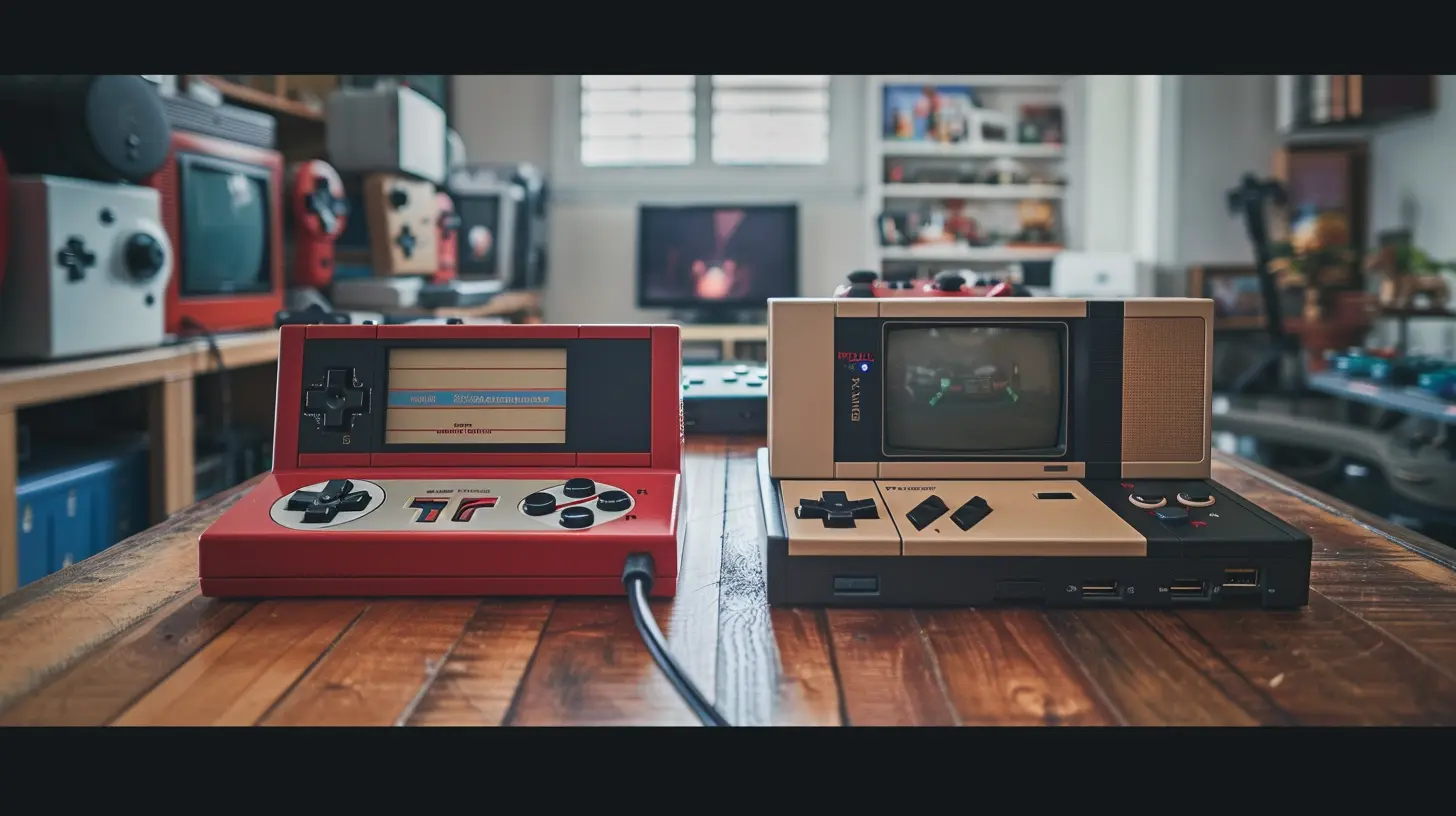
Cost (Then vs Now): It’s Not Just Inflation
Retro Console Costs
Back in the day, consoles weren’t cheap, but they were affordable. You paid for your machine, a game or two, maybe a memory card (hello PS1), and that was it. No subscriptions needed.Modern Console Costs
Today, consoles themselves start around $400–$500, and that’s just the beginning. Add a couple of controllers, a few new release titles ($70 each, anyone?), and you’re easily over $1,000. And don’t forget online memberships and additional storage.Worth it? Maybe. But it’s definitely not a budget-friendly hobby anymore.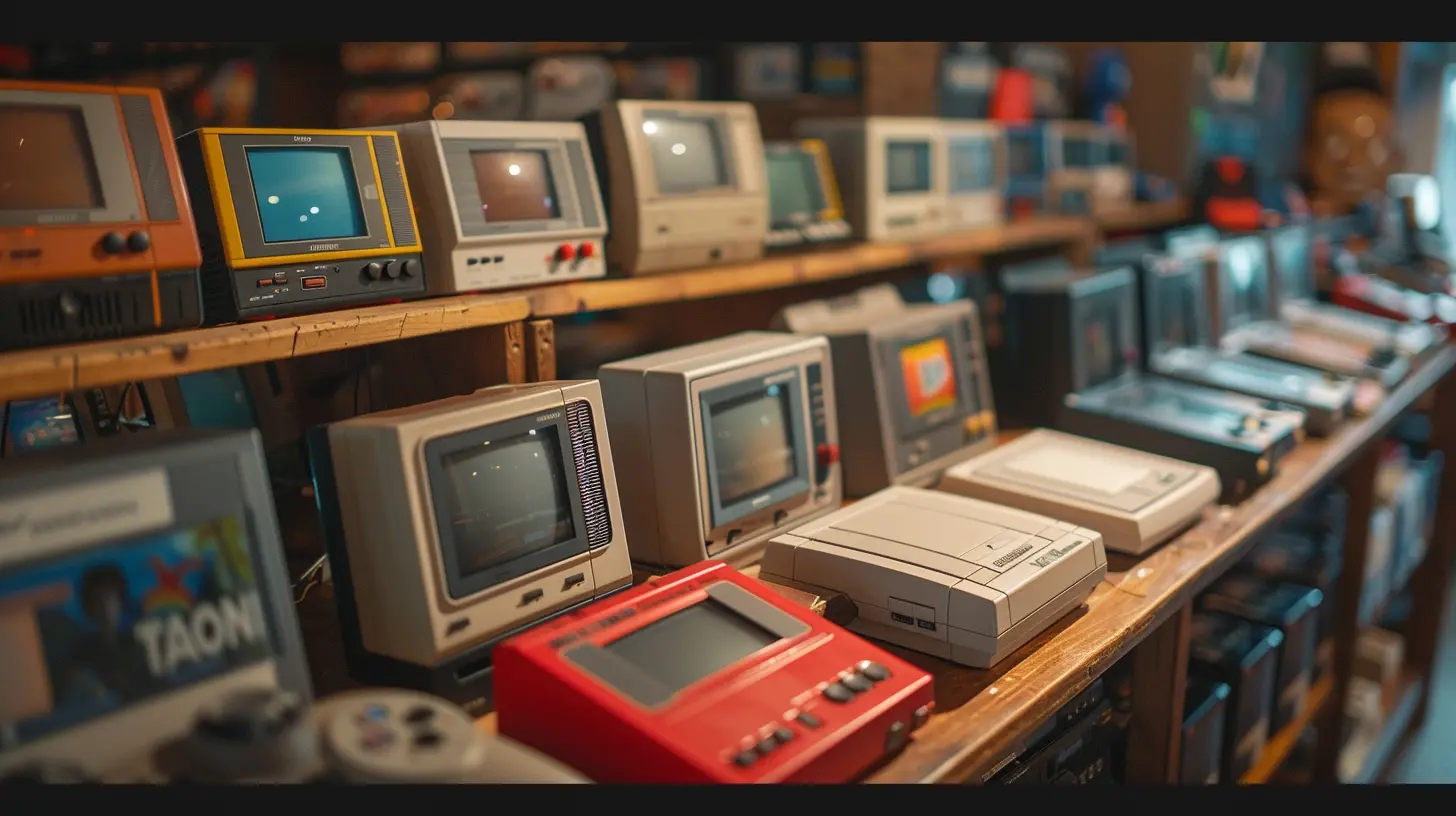
Longevity and Durability
Retro Built Like a Tank
Let’s give a round of applause to those chunky consoles that survive decades in an attic and still work when plugged in. The NES and SNES? Built like tanks. Sure, they ran 8-bit graphics, but they were tough little machines.Modern Technological Marvels... with Caveats
Modern consoles are incredible feats of tech—but they’re delicate. One software bug or overheating fan and you're looking at days without gaming (and maybe a costly replacement). Don’t even get me started on how long it takes to load updates...Game Libraries: Quantity vs Quality?
Retro: Curated Collections of Classics
Retro libraries were tight knit. Developers had fewer resources, so games had to count. Each title felt like a gem. Who else remembers reading the game manual before playing, just to soak in every detail?Modern: Massive Variety—Almost Too Much?
Modern consoles have libraries with thousands (yes, thousands) of games. From AAA hits to tiny indie titles, the variety is mind-blowing. That’s awesome... until you find yourself scrolling for an hour just deciding what to play. Sound familiar?Controllers: From D-Pads to DualSense
Oh, the evolution of the controller...Retro: Simple, Iconic, and Comfortable
Two buttons, a D-pad, and that was it. No ergonomic design, but they just worked. The NES controller? A literal rectangle. Still, you could game for hours.Modern: Ergonomic and Feature-Packed
Today’s controllers are designed for performance—haptic feedback, motion sensing, built-in speakers, multi-function triggers. They feel amazing in your hands... but also cost a pretty penny if you need a replacement.Portability and Accessibility
Retro: You Played Where the Console Sat
Want to play a game? You had to plop down where the TV lived. And you were probably fighting for screen time with someone else in the house.Modern: Play Anywhere, Anytime
Handheld-hybrids like the Nintendo Switch changed the game. Add in remote play, gaming laptops, and smartphones, and gaming is now anywhere you want it. Miss your save file? No worries—it’s backed up in the cloud.Community and Culture
Retro: Local Legends and Gaming Magazines
Back in the day, you weren’t in a Discord server or Reddit thread—you were comparing notes on the playground or reading cheat codes in a magazine. The community was smaller, more personal, and honestly, kind of magical.Modern: Social Sharing and Massive Online Communities
Now you can stream your gameplay, join global matches, and form communities with people across the planet. It’s an incredible time for gamers socially, but it can also feel overwhelming.The Verdict: Is One Better?
Let’s be honest, comparing retro consoles to modern ones is like comparing vinyl records to Spotify. Both have their charm, their strengths, and their fanbases.If you’re in it for nostalgia, simplicity, and pixelated perfection, retro consoles are your paradise. But if you crave photorealistic worlds, epic online battles, and seamless streaming, modern consoles are where it’s at.
Why not love both?
Dust off that SNES when you want to relive your childhood, then fire up the PS5 when you want to be blown away. Gaming isn't about choosing sides—it’s about enjoying the ride.
Final Thoughts: A Love Letter to Past and Present
Gaming has come a long way. What started with 8-bit experiments has exploded into billion-dollar cinematic adventures. Both retro and modern consoles have helped shape the gaming industry—and our lives—in ways we never imagined.So next time someone asks, “Are retro games better than modern ones?” just smile and say, “They’re just different.” Because at the heart of it, we’re all still that kid sitting cross-legged on the floor with a controller in our hands, losing ourselves in another world.
all images in this post were generated using AI tools
Category:
Gaming ConsolesAuthor:

Pierre McCord
Discussion
rate this article
2 comments
Josephine Bailey
This article perfectly captures the joy and nostalgia of retro consoles while also acknowledging the advancements of modern gaming. It's a beautiful reminder of how both eras offer unique experiences, connecting us through shared memories and the evolution of our favorite pastime.
November 23, 2025 at 3:51 AM

Pierre McCord
Thank you! I'm glad you enjoyed the article and found it captures the essence of both retro and modern gaming experiences.
Gemma Forbes
Great article! It’s fascinating to see how retro consoles bring back cherished memories while modern consoles push the boundaries of gaming. Both have unique appeals, showing just how far gaming has come while celebrating its rich history. Keep up the great work!
July 23, 2025 at 4:09 AM

Pierre McCord
Thank you for your kind words! I'm glad you enjoyed the article and appreciate the unique appeal of both retro and modern consoles.
